
AE 1137 - INTERVIEW
Going From Beginner to Near-Native in Russian with Justin Hammond - Part 1
Learn Australian English in each of these episodes of the Aussie English Podcast.
In these Aussie English Interview episodes, I get to chin-wag with different people in and out of Australia!
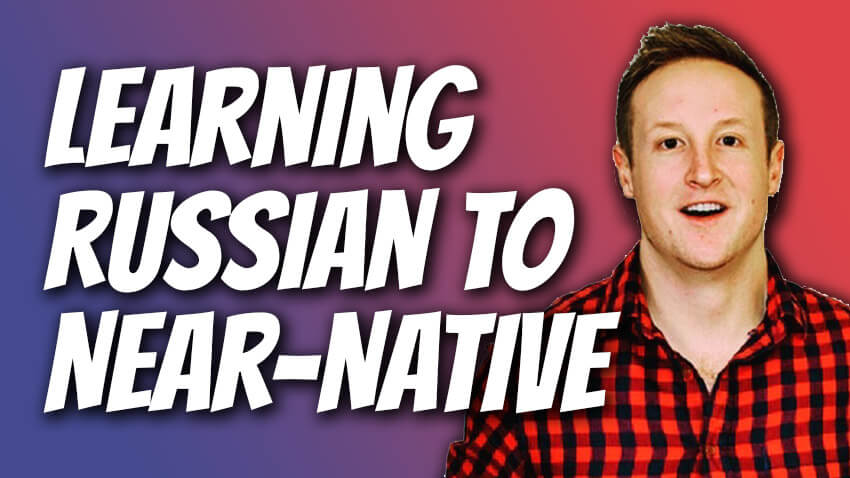
In today's episode...
Here’s another round of interviews for you here on the Aussie English podcast!
Do you remember Justin Hammond of episode AE 475? Yep, this mate’s a language learner like me and has been doing travels around Russia and Ukraine.
In this first episode, we catch up on his language learning experiences, learning French, Mandarin Chinese and then Russian later at university.
We talk about why he ended up settling on Russian as a language to take through university and beyond the difficulties of learning significantly different foreign languages with very different grammar and writing systems compared to English.
We also had a great chat on how we became a famous YouTuber in Russia! He does all of his videos and skits that he does in these videos in Russian.
He also gives out tips on how to get the most out of an exchange in a foreign country and make sure your target language improves as much as possible.
And lastly, we talk about the pros and cons of using native versus non-native English teachers or teachers in general.
Join us today!
Let me know what you think about this episode! Drop me a line at pete@aussieenglish.com.au
** Want to wear the kookaburra shirt? **
Get yours here at https://aussieenglish.com.au/shirt
Improve your listening skills today – listen, play, & pause this episode – and start speaking like a native English speaker!

Watch & listen to the convo!
Listen to today's episode!
This is the FREE podcast player. You can fast-forward and rewind easily as well as slow down or speed up the audio to suit your level.
If you’d like to use the Premium Podcast Player as well as get the downloadable transcripts, audio files, and videos for episodes, you can get instant access by joining the Premium Podcast membership here.
Get more out of every episode!

Premium Podcast members get access to...
- All 900+ podcast episodes including member-only episodes
- Member-only episode video lessons
- Downloadable transcript PDFs & audio files for every episode

Recent Episodes:


AE 1361 – The Goss: TV Shows We’re Currently Binge Watching [Members Only]
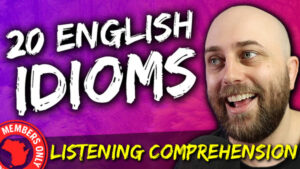
AE 1360 – 20 English Idioms Explained | Members Only
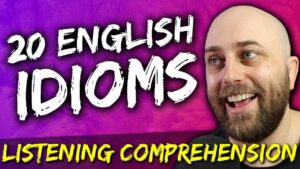
AE 1359 – 20 English Idioms To Transcribe
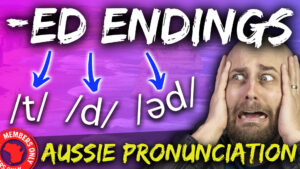
AE 1358 – How to Pronounce -ED Endings in Australian English [Members Only]
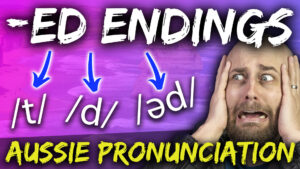
AE 1357 – How to Pronounce -ED Endings in Australian English

AE 1356 – Will AI Save Us Or Replace Us?
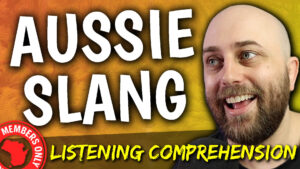
AE 1355 – 20 Aussie Slang Sentences Explained [Members Only]
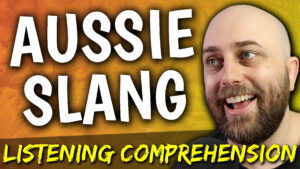
AE 1354 – 20 Aussie Slang Sentences to Transcribe

Share

Join my 5-Day FREE English Course!
Complete this 5-day course and learn how to study effectively with podcasts in order to level up your English quickly whilst having fun!


Want to improve a specific area of your English quickly and enjoyably?
Check out my series of Aussie English Courses.
English pronunciation, use of phrasal verbs, spoken English, and listening skills!

Have you got the Aussie English app?
Listen to all your favourite episodes of the Aussie English Podcast on the official AE app.
Download it for FREE below!



Want to improve a specific area of your English quickly and enjoyably?
Check out my series of Aussie English Courses.
English pronunciation, use of phrasal verbs, spoken English, and listening skills!
Leave a comment below & practice your English!






Responses